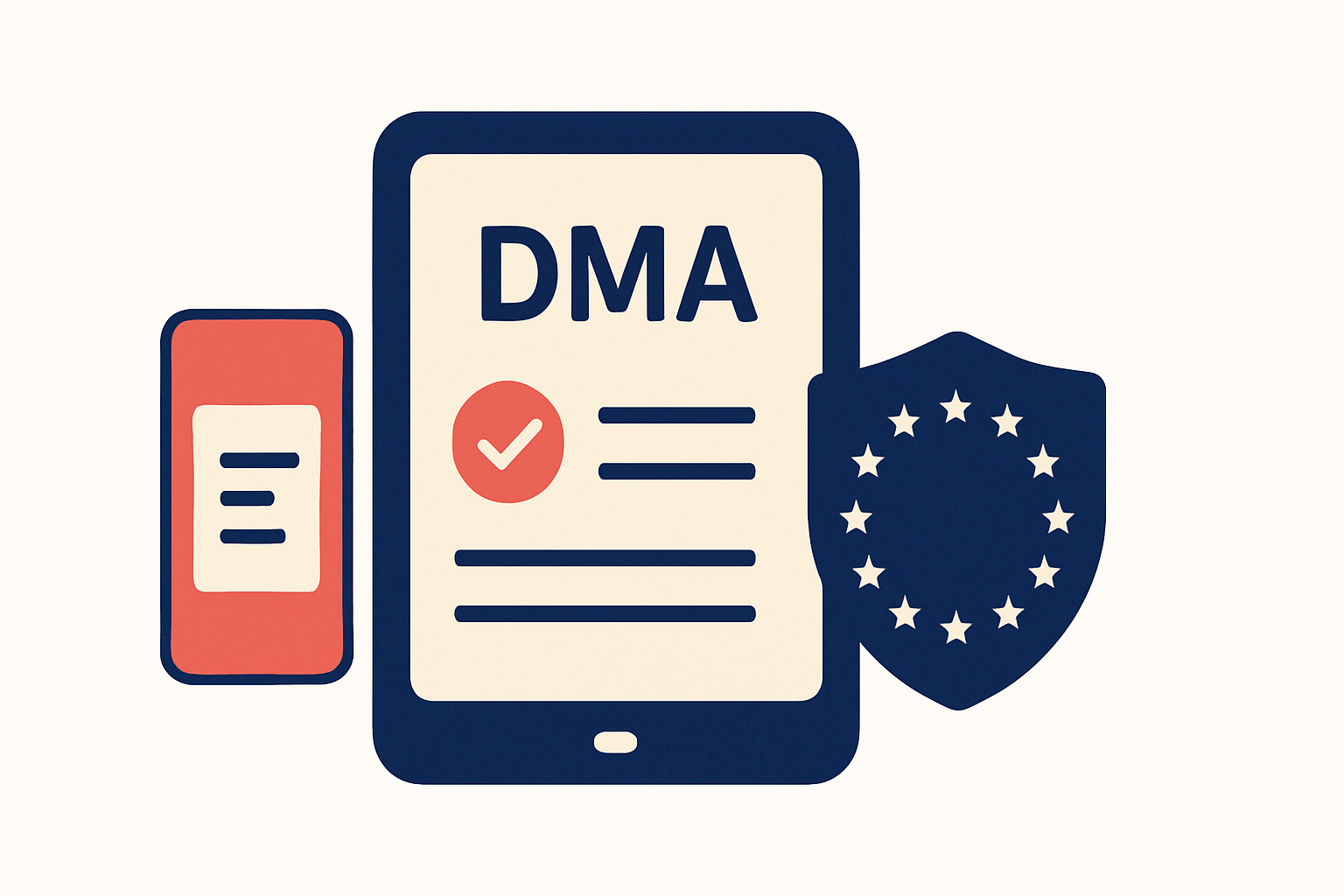Digital Markets Act for App Builders

For app builders and developers in the EU, the question at the top of their minds is clear: what does the Digital Markets Act (DMA) mean for compliance and continued innovation? The law was introduced to protect users, ensure fair competition, and create stricter obligations for dominant platforms and app marketplaces. For businesses focused on building and scaling apps, understanding this law isn’t optional—it’s essential for long-term growth. Audiorista provides a trusted solution that enables content creators, publishers, and developers to stay compliant while focusing on product innovation and distribution. This guide explains the fundamentals of the DMA, how it impacts app builders directly, what compliance requires, and how tools like Audiorista make adaptation straightforward.
Understanding the Digital Markets Act
The Digital Markets Act is a European Union regulation designed to ensure fair and open digital markets. It specifically targets large platforms classified as “gatekeepers,” such as dominant app marketplaces. The DMA introduces strict rules to prevent unfair practices, reduce monopolistic control, and give developers greater access to users without restrictive conditions.
Among the most important rules are requirements for gatekeepers to allow alternative app stores, prevent forced bundling of services, and remove barriers that limit competition. In practical terms, this creates new opportunities for developers to reach audiences through multiple distribution channels, while also creating a compliance-heavy environment for apps that want to remain inside EU marketplaces. For app builders, understanding these rules ensures smoother publishing and avoids unnecessary disruption when marketplaces implement regulatory changes.
Impact on app builders
The DMA reshapes how independent developers and larger businesses alike distribute their apps in Europe. One significant effect is greater freedom in revenue models, as app builders are less restricted to proprietary payment systems imposed by major platforms. Developers can explore new pricing or monetization strategies without being locked into gatekeeper terms that previously dictated fees and transaction processes.
Competition shifts are another key impact. By opening up access to app marketplaces, smaller developers gain more visibility and less competitive disadvantage compared with established players. While this levels the playing field, it also increases the need for strategic differentiation. App builders must pay closer attention to compliance rules that protect consumers and ensure fairness. The challenge lies in keeping pace with evolving regulations while taking advantage of the DMA’s opportunities for broader distribution and flexible revenue models.
Ensuring compliance in EU app marketplaces
Compliance under the DMA isn’t only about marketplaces adjusting their rules—it also requires developers to adapt to new approval processes and ensure their apps meet EU requirements. Key focus areas include app approvals that meet transparency obligations, distribution flexibility in multiple app stores, and payment systems that are compliant but not restricted to a single platform requirement.
For app builders, the workload of managing these steps can be significant. This is where Audiorista’s platform plays a vital role. With Audiorista, developers can simplify the entire distribution and launch workflow, ensuring apps are deployed in compliance-ready formats. Audiorista provides transparent publishing, streamlined submission flows, and support for compliant monetization and distribution models. This allows businesses to focus on growth and user experience, instead of administrative hurdles tied to DMA regulations.
Adapting to marketplace changes
To adapt successfully, app builders should prepare for adjustments in how they publish, manage monetization, and reach users in Europe. The DMA shifts expectations away from single-channel platforms and emphasizes compliance transparency and user choice. Developers need to anticipate stricter oversight in their app submissions, as well as opportunities for reaching new audiences through alternate marketplaces and app distribution partners.
For companies evaluating the best tools to build and scale compliance-ready apps, it’s important to consider the flexibility of no-code platforms that reduce development overhead while supporting rapid publishing. Explore our in-depth guide on the best no-code app builders for digital media to see which options align with different needs under the evolving European landscape.
In terms of staying compliant while maintaining growth, Audiorista Apps makes compliance-ready publishing seamless. The platform provides businesses with direct control, transparent options, and streamlined workflows. This enables developers to spend less time on compliance administration and more time on scaling high-quality apps across competitive markets.
Future outlook for app builders under the DMA
The implications of the Digital Markets Act extend beyond immediate compliance—long term, it will reshape the landscape of European app development entirely. Developers can expect more diverse app distribution ecosystems, stronger competition among marketplaces, and growing demand for compliant monetization solutions. These shifts create an environment where innovation thrives, but only when supported by a platform that ensures regulatory alignment from the start.
No-code development, combined with SaaS solutions like Audiorista, represents the next phase of this evolution. Businesses can avoid the complexity of custom infrastructure while relying on automated compliance workflows built into their development tools. Audiorista’s platform supports rapid app launches, flexible monetization, and built-in compliance features, enabling agile scaling and reduced friction in meeting DMA obligations. For app builders, the result is the ability to stay nimble and competitive while driving long-term growth across an EU market that will only become more open and diverse under the DMA framework.
Stay ahead of EU app rules with Audiorista—launch compliance-ready apps quickly and scale your business with confidence. Start building with us today.


